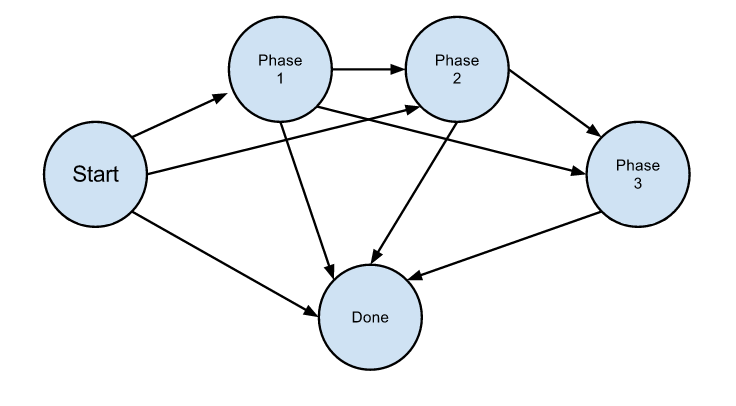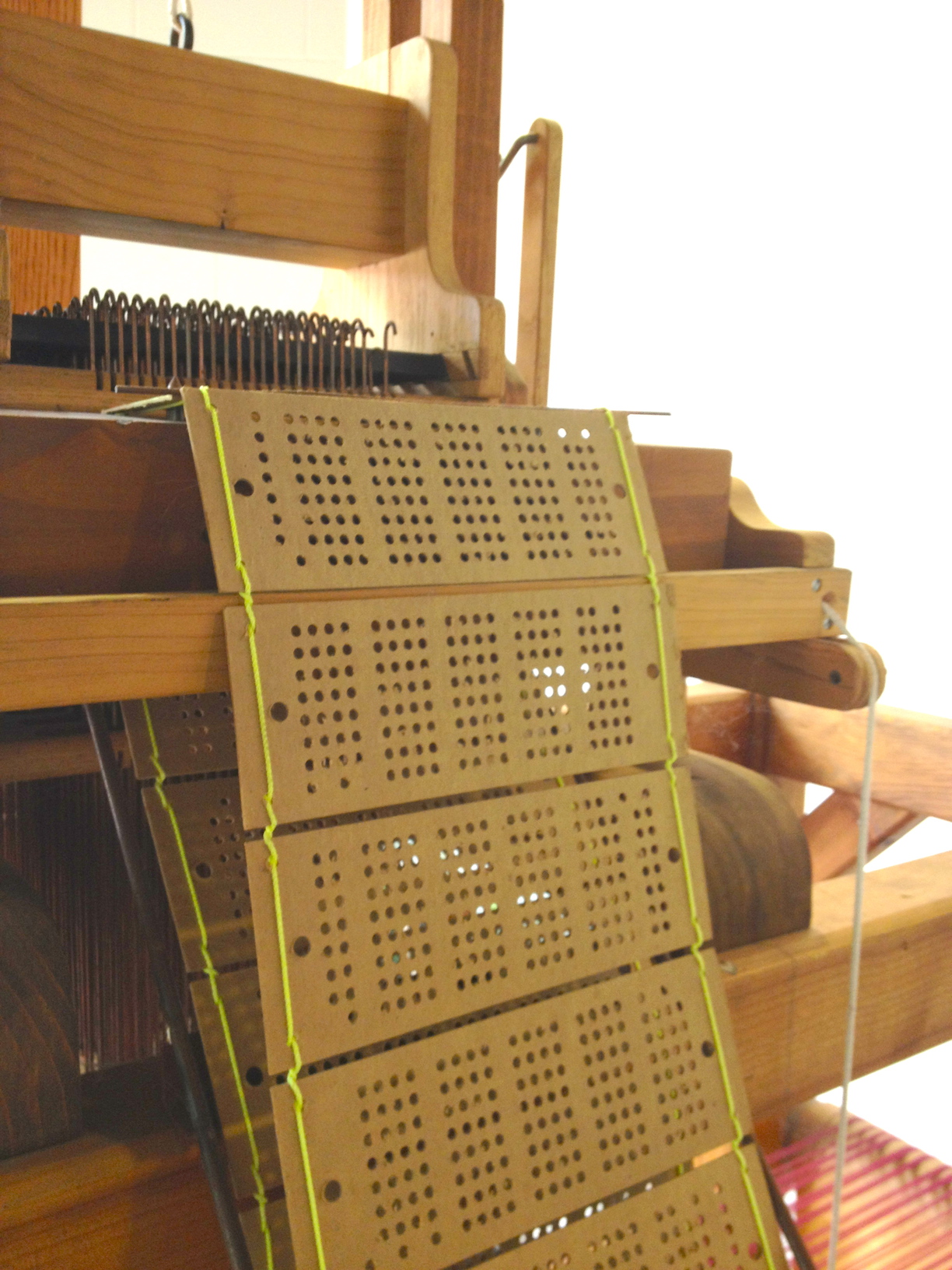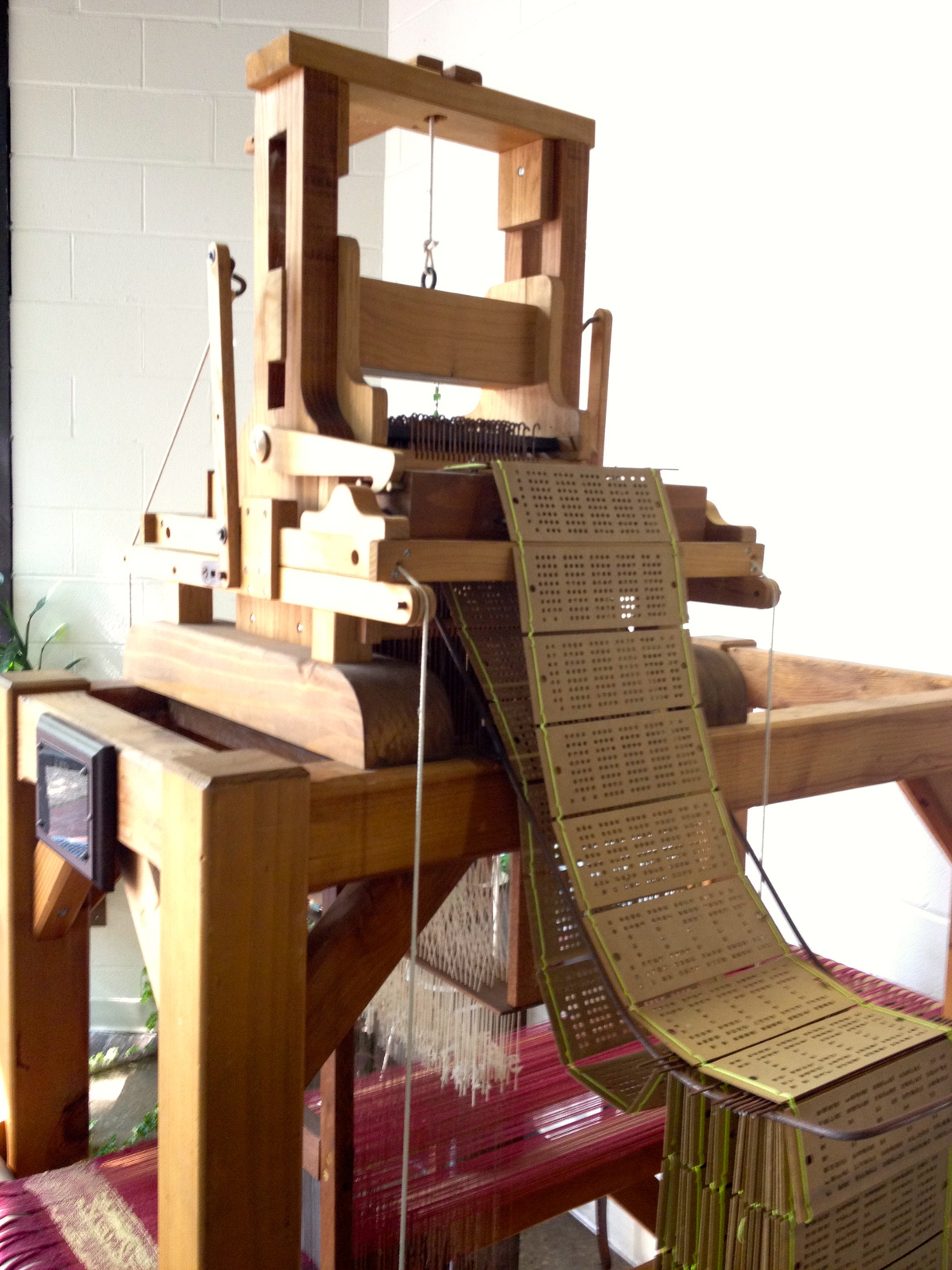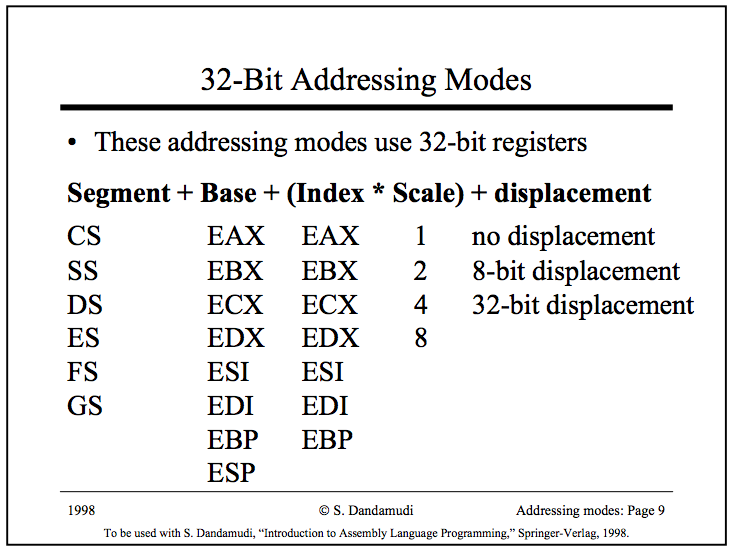Difference between revisions of "CSC231 Schedule 2012"
(→Misc. Links & Information) |
(→Weekly Schedule) |
||
| Line 284: | Line 284: | ||
} | } | ||
| − | int sum( x, y ) { | + | int sum( int x, int y ) { |
return x+y; | return x+y; | ||
} | } | ||
* '''Wednesday''' | * '''Wednesday''' | ||
| + | ** review passing of ''value'' parameters through the stack | ||
| + | ** functions returning values... | ||
| + | ** local variables... | ||
* '''Friday''' | * '''Friday''' | ||
---- | ---- | ||
Revision as of 09:21, 7 November 2012
--D. Thiebaut 11:15, 24 August 2012 (EDT)
Misc. Links & Information
- NEW: All the class demo files, as of 11/6/12
- nasmld script
- Things to remember while programming in assembly
- The NASM Manual (http://alien.dowling.edu/~rohit/nasmdoc0.html)
- Paul Carter's assembly language tutorial. Paul Carter's page can be found at http://www.drpaulcarter.com/.
- The Art of Assembly Language. It assumes a different assembler, and hence a different syntax, but has a lot of very good information.
- The Pentium Instruction Set on Wikipedia.
- Programming the Arduino in assembly.
Weekly Schedule
| Week | Topics | Reading |
| Week 1 9/7 |
|
|
| Week 2 9/10 |
|
|
| Week 3 9/17 |
|
|
| Week 4 9/24 |
int a = 3, b = 5, result = 0; result = a + b;
|
|
| Week 5 10/1 |

|
|
| Week 6 10/8 |
|
|
| Week 7 10/15 |
|
|
| Week 8 10/22 |
nasm -f elf -F stabs myProg.asm ; ld -melf_i386 -o myProg myProg.o ; ./myProg
shl reg, 1
shl mem, 1
shl reg, imm
shl mem, imm
shl reg, cl
shl mem, cl
|
|
| Week 9 10/29 |
|
|
| Week 10 11/05 |
int main() {
int a=3, b=5, res;
res = sum( a, b );
...
}
int sum( int x, int y ) {
return x+y;
}
|
|
| Week 11 11/12 |
|
|
| Week 12 11/19 |
|
|
| Week 13 11/26 |
|
|
| Week 14 12/03 |
|
|
| Week 15 12/10 |
|
|
References
- ↑ 1.0 1.1 Intel Instruction Set Summary, from http://download.intel.com/design/processor/manuals/253666.pdf




